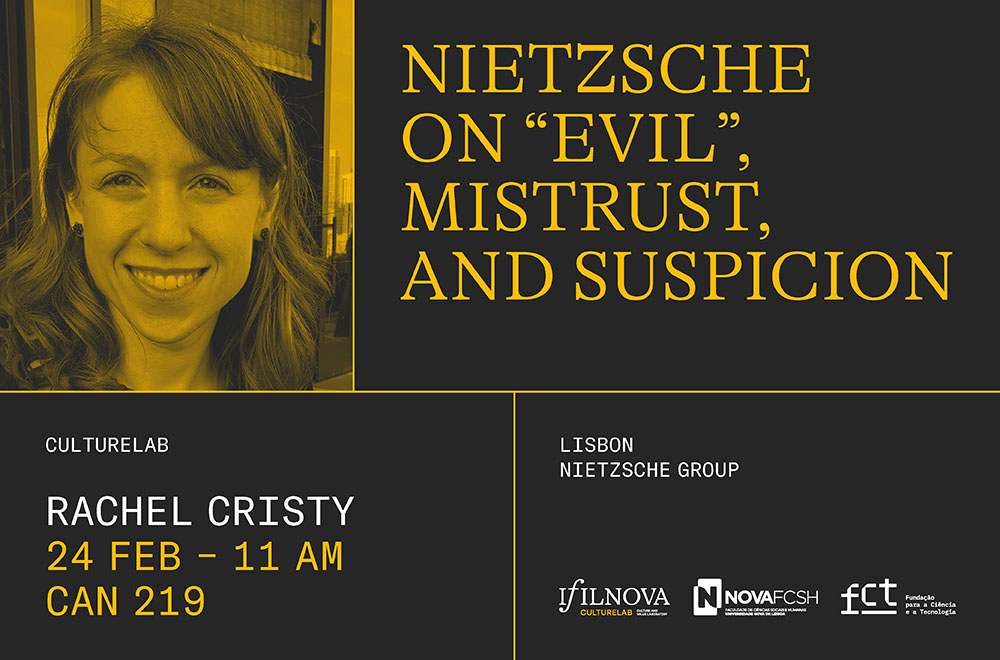Rachel Cristy

Nietzsche famously presents an undermining genealogy of the opposition ‘good vs evil’ and rejects slave morality’s condemnation of selfishness, cruelty, and domination as ‘evil’ (böse). But Nietzsche also sometimes labels certain people and tendencies ‘evil’, seemingly in his own voice, rather than attributing the judgment to slave morality. This talk investigates Nietzsche’s peculiar use of the word ‘evil’, which is often connected with the themes of mistrust and suspicion about the world, and its relationship to his understanding of the ethic of custom (die Sittlichkeit der Sitte).
Bio
Rachel Cristy (B.A. in Philosophy and Linguistics from Stanford, 2011; PhD in Philosophy from Princeton, 2018) is lecturer in the Philosophy Department at King’s College London. Her research interests are in the history of late modern philosophy, beginning with Kant and tracing his influence through early neo-Kantianism to certain late 19th century figures who are not typically thought of as successors to Kant: Nietzsche and the American Pragmatists, particularly William James. She is especially interested in late modern philosophers’ attitudes toward science, including both epistemological views (on its methods, its limitations, what sort of philosophical foundation it has or needs) and ethical views (on the proper place of science in the life of individuals and societies). She also has more specific interests in Kant’s, Nietzsche’s, and James’s work, especially with regard to the similarities and historical connections among their respective epistemologies, as well as the way aesthetics is closely tied to their epistemology and/or ethics.

